Let's Discuss Dog Nutrition
Do you know what types of foods your dog needs to have a balanced diet and stay healthy? Your dog has unique qualities and characteristics that the right kind of nutrients in food can only nurture. To determine which diet is best for your dog, you must first understand what your dog needs to stay healthy and active and then choose a diet that meets those needs. Every dog is unique and they all have different nutritional requirements.
Our dog's nutritional needs aren't always black and white like our own diets. Many people hold different views on nutrition. Your dog's unique dietary requirements will vary depending on its size, age, breed, and stage in life. You can improve your dog's health by choosing a healthier diet and considering food allergies as part of the overall consideration.
All living things require nutrients - substances derived from food that act as fuel for our bodies. Water, protein, fat, carbohydrates, vitamins, and minerals are the six major nutrients for dogs and people.
Let's look at six essential nutrients your dog needs to eat as part of choosing a healthy diet.
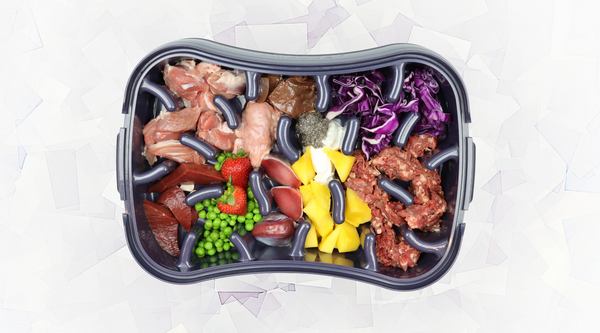
Protein
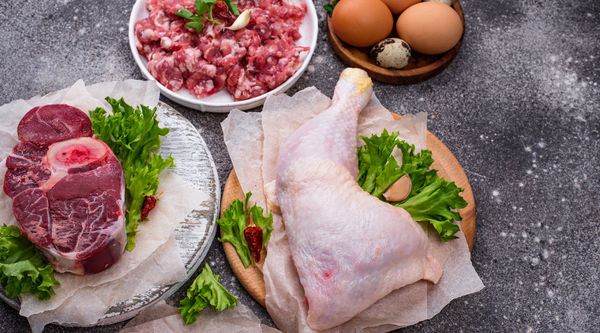
Protein is a macronutrient that gives your dog energy and provides the basic building blocks for growth. Protein is composed of amino acids, which are essential for life. Amino acids help support the immune system and muscles and repair of body tissues.
Proteins are responsible for forming hormones, neurotransmitters, enzymes, and antibodies that keep the body functioning optimally (think healthy hair, skin, nails, muscles, and bones). Because dogs' bodies cannot produce essential amino acids at the required levels, they must obtain them through diet. Protein can also provide energy in the absence of sufficient carbohydrates and fats. Since the body cannot store protein, it requires a constant dietary supply.
High-quality protein sources in dog foods contain animal-based proteins, including chicken, lamb, turkey, beef, fish, eggs and plant sources such as beans and lentils.
Fat
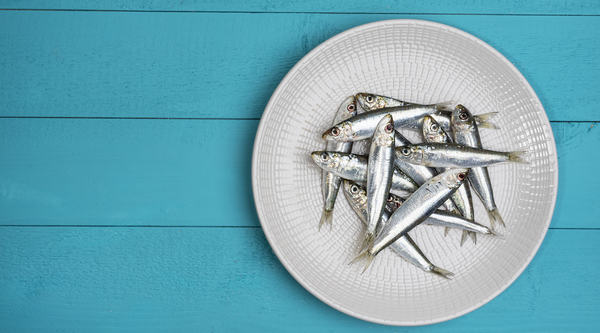
Fat is an essential nutrient for dogs because it supplies the most concentrated form of energy, with more than twice the energy of proteins and carbohydrates.
As well as providing essential omega-6 fatty acid and omega-3 fatty acids, it helps to:
- Absorb vitamins and mineral
- Maintain healthy skin and coat
- Regulates body temperature
- Promotes heart health and a healthy nervous system
You can get fat from low-mercury fish and fish oil; plant-based oils, such as flaxseed and hempseed. Fats make pet food taste better and help complement and improve the flavour of raw ingredients.
Vitamins
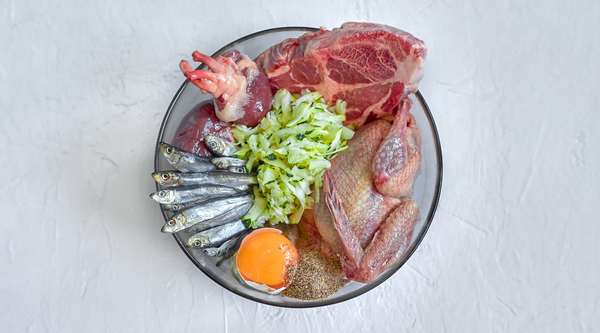
Your dog needs two broad classifications of vitamins: fat-soluble and water-soluble. Fat-soluble vitamins can be stored in the body's fatty tissue, but they must be present in the diet to avoid deficiency. On the other hand, water-soluble vitamins can't be stored in the body and must always be replenished daily through food or supplements. Vitamins play several vital roles, such as maintaining calcium and phosphorus levels (D), bringing strength and power to the immune system (A), serving as antioxidants (C and E), promoting the clotting of the blood (K), and maintaining the function of the nervous system (B12).
Get vitamins from a varied diet containing organ and muscle meats and dog-friendly plant-based foods and ingredients.
Water

One of the most basic needs for your dog is water. About 80% of your dog's body is made up of water. Water helps with digestion, absorption, circulation and excretion. Water plays a crucial role in maintaining body temperature and carrying nutrients to cells – which is why it's so vital that you keep your dog hydrated! Sadly, many people do not understand how important it is that their dogs have access to clean and fresh water every day.
Dogs need different amounts of water depending on their health, activity level, and environmental temperature. To keep your dog adequately hydrated, always have fresh and clean water available for them at all times. If you are going on a long car ride with your pup, remember to pack some bottled water so both you and your dog can stay refreshed!
Carbohydrates
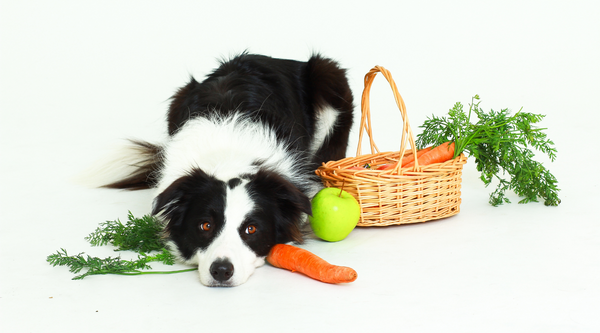
A macronutrient comprises units of sugars, starches or indigestible fibre. Carbohydrate is the body's leading source of glucose, which it uses for energy. In dogs, carbohydrates are the only nutrient category that isn't essential since they can synthesize glucose from sufficient dietary protein and fat.
Even though carbohydrates are not essential nutrients for dogs, healthy carbohydrates supply essential vitamins, minerals, antioxidants, and other plant-derived nutrients beneficial to their health.
Your dog's primary function of carbohydrates is to provide adequate energy. They are also made up of sugars, starches and fibre. Therefore, they give energy to the body and are especially important when dogs are exercising. The most common carbohydrate sources include dog-friendly vegetables, fruits, legumes, and gluten-free grains.
Minerals

Your dog's body requires a mix of minerals to function correctly. Minerals are inorganic substances that come from the earth and cannot be produced by the body. They must be ingested, either through food or supplements.
Minerals are essential for supporting life by supplying a variety of functions, including forming bones (calcium, phosphorus); transporting oxygen throughout the body (iron); healing wounds (zinc); providing antioxidant support (selenium); facilitating nerve transmission (sodium, potassium, calcium, magnesium); and regulating fluid balance (sodium, chloride, potassium).
Minerals are found in different foods. Meats are high in phosphorus, while bones are high in calcium. Organ meats are rich in copper and iron, while shellfish contain zinc.
Sources for Dog Nutrition
Choosing a dog's food is one of the most critical decisions. It can impact your pet's health and longevity and their overall happiness. There are many different types.
Not sure which foods are the most nutrient-dense? Here are some suggestions:
Water - Filtered tap water is clean, pure, cost-effective, and readily available.Protein: One large egg provides approximately 6 grams of protein, making it the most potent source of protein.
Fat - Sardines, rich in omega-3 acids and low in mercury; nutrient-rich; high in EPA and DHA.
Carbohydrates: The carbs found in butternut squash are high in vitamin A and C, full of antioxidant-rich carotenes, and a source of numerous vitamins, minerals, and antioxidants, such as magnesium manganese, and potassium.
Vitamins - Dark leafy greens contain vitamins A, C, E, K, folate, carotenoids, and many minerals that help protect against cancer.
Minerals: Besides being a good source of copper, iron, magnesium, manganese, phosphorus, selenium, and zinc, oysters are also an excellent source of vitamin D.
Conclusion
Nutrition is feeding your dog building blocks and energy components that help them grow, develop and remain active all their lives. It would take entire books to describe the importance of each class of nutrients mentioned above, so I have only touched the surface. For dogs to survive and thrive, they need ample nutrients. Supplementation becomes more critical as food sources for these nutrients decline.
Don't forget your dogs nutritional needs will vary depending on size, age and breed - please consult your vet to determine which food is best for your dog particularly if your dog has health issues like digestive issues. A veterinarian can assist you in finding out whether you are overfeeding your dog, or whether it is not getting enough food, and they can recommend a diet that is right for your dog.
At Super Feedy, we launching a new innovative, versatile 4-in-1 slow feeder dog bowl and reversible lick mat perfect for helping you serve delicious BARF food for your dog. Very soon we will also have some BARF diet recipes following the BARF model diet to give you ideas for a balanced meal.
Changing The Way Dogs Eat for Good!
As responsible pet parents, we know that you want to do everything to help. Living with a sick dog after a meal is no fun. Our two doggos, Marley and Belle, both like to eat fast! So we know exactly what it's like to live with a dog in pain and discomfort after eating.
We are introducing the Ultimate, Versatile 4-in-1 Slow Feeder Dog Bowl! We're excited this new slow feeder dog bowl combines modern design with innovative functionality. It's more than just a slow feeder. A slow feeder bowl that naturally slows your dog down at chow time, as well as a reversible lick mat so your pet can enjoy a variety of delicious foods like purees, stews, or wet food. An excellent bowl for easy delicious food prep and storage doubles as a dog-friendly travel bowl for your canine adventures.
Your dog will have a happier, healthier mealtime experience giving you peace of mind.
Transform Mealtime with Super Feedy's 4-in-1 Slow Feeder Dog Bowl
Enhance your dog's dining experience with Super Feedy's innovative 4-in-1 Slow Feeder Dog Bowl. This versatile design functions as a slow feeder, reversible lick mat, food prep, and travel bowl, promoting healthier eating habits and providing mental stimulation. Made from durable, non-toxic materials with a stable suction base, it's perfect for medium and large dogs.




